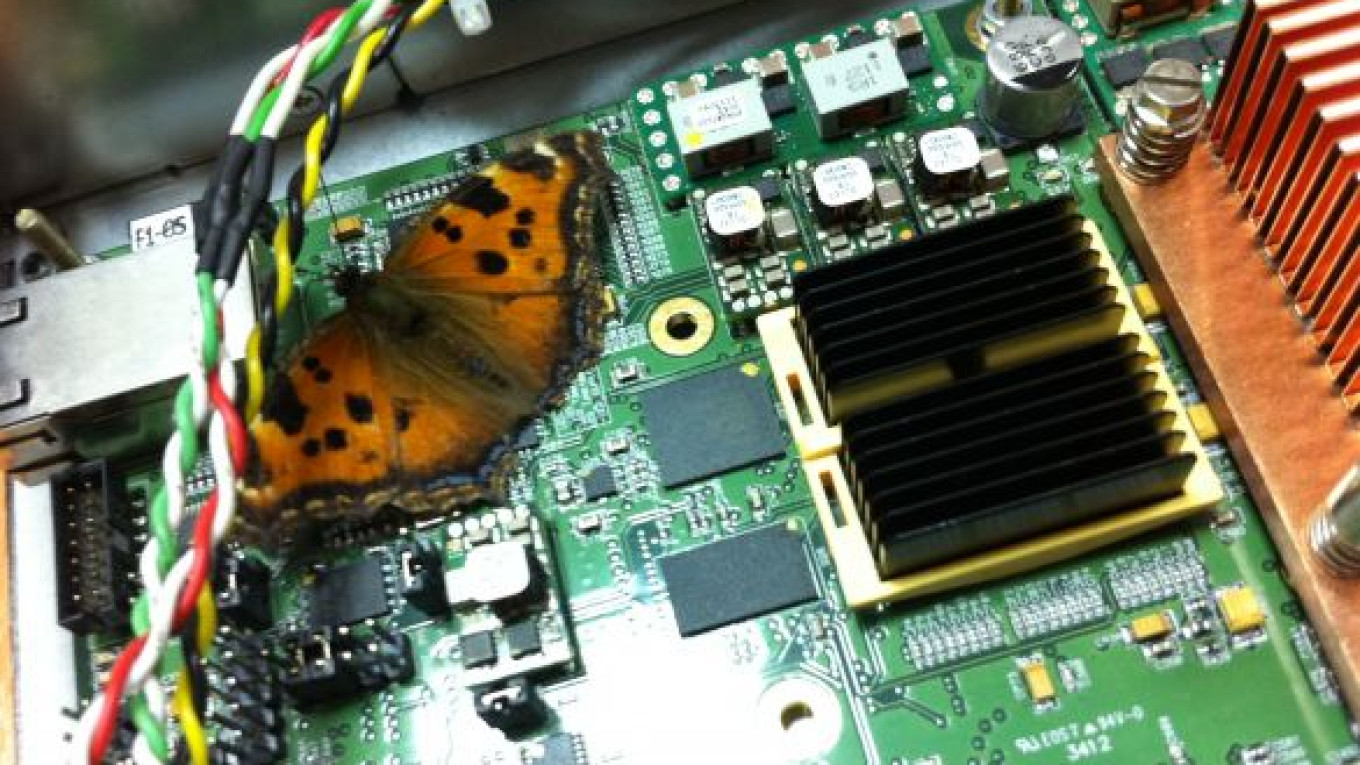PERESLAVL-ZALESSKY, Yaroslavl Region — Russia is lagging five and a half years behind the U.S. in supercomputing technology and closing the gap is essential for the competitiveness of the Russian economy, an Academy of Sciences computing expert said.
Supercomputers, which are ranked according to their speed of calculation measured in trillion of floating operations per second, or Tflops, allow scientists to safely model anything from a mobile phone's reliability without breaking the device, to a nuclear bomb test.
The tasks enabled by supercomputers that feed an economy include advanced material creation, new technologies, manufacturing and process modeling, said Sergei Abramov, head of the academy's Program Systems Institute in Pereslavl-Zalessky, in an interview on the sidelines of the National Supercomputing Forum on Tuesday in this historic town, 140 kilometers north east of Moscow.
The more powerful the country's supercomputer is, the faster it can calculate tasks, which would normally take years for conventional computers to process. And this gives the country a competitive advantage, Abramov said.
"A supercomputer is the only instrument to beat a competitor," he said.
To explain what he meant, Abramov quoted the U.S. Council on Competitiveness' president Deborah Wince-Smith, whose phrase "the country that wants to outcompete must outcompute" has become a de facto motto for supercomputer developers around the world.
Each country has to develop its own supercomputer because no country would sell something that gives it competitive advantage over other nations, Abramov said.
Kim Khachaturyan, chief executive of Moscow-based computer manufacturer Rosta, which specializes in research and development of complex computer systems, said that trying to catch up with global cutting-edge technology may prove to be impossible. Russia has no choice but to use components commercially available in other countries in creating its own machines, he said.
Abramov, however, said that the gap could be narrowed by carefully organized cooperation of different companies — both foreign and domestic, operating on the Russian market. This is something the state could help to achieve, he added.
Anatoly Slutsky, a scientist from the Russian Science and Research Center of Computer Technology, who was responsible for the development of supercomputer systems in the Soviet Union and is still engaged in the process, said that every necessary computer component is now manufactured in Russia, except central processing unit chips, or CPU. In this area, Russian-made computers have to rely on AMD or Intel chipsets.
Data storage is another area where Russians have to rely on Western technology. There is no point building a fast computer if it cannot save the data it produces with a matching speed, said Geoffrey Noer, a marketing director from Panasas, a U.S.-based company that builds storage solutions for big data workloads, who was also present at the forum.
A list of the world's top 500 most powerful computers built with a combination of locally produced and imported parts is published twice a year by top500.org, an organization that monitors technological accomplishments in different countries.
According to the list, Russia's fastest supercomputer, called Lomonosov, is located in the research-computing center in Moscow State University. It has 78,660 central processing unit cores and is capable of 1,700.2 TFlops theoretical performance.
It is 36 places behind the Chinese Tianhe-2 supercomputer with 3.12 million cores and 54,902.4 TFlops theoretical performance, which tops the list.
In comparison, an average $1,000 desktop computer available has four cores and is only capable of about 6.7 TFlops.
Alexander Buravlev, technical director of Aquarius, which is one of Russia's oldest domestic computer manufacturers, warned against confusing supercomputers built by academia for setting records with technical computers designed to perform specific tasks.
The concept of a supercomputer from academia is different from that of real world, Buravlev said. Industry supercomputers are no more than just specially designed machines that have extra power to process certain tasks, for example, to calculate oil reserves or assess risks associated with a particular event, he said.
Yevgeny Chistyakov, a project manager from Russian IT equipment manufacturer Kraftway, agrees. Technical supercomputers are already widely used by the entertainment and other industries, he said.
Computer-generated imagery, known as CGI effects, and cartoon animations are all created on such machines. "Something that would take years to do on a computer at home, may take only five minutes on a supercomputer," Chistyakov said.
Among the foreign sponsors of the event were Intel, AMD, IBM, QLogic and Asus.
A Message from The Moscow Times:
Dear readers,
We are facing unprecedented challenges. Russia's Prosecutor General's Office has designated The Moscow Times as an "undesirable" organization, criminalizing our work and putting our staff at risk of prosecution. This follows our earlier unjust labeling as a "foreign agent."
These actions are direct attempts to silence independent journalism in Russia. The authorities claim our work "discredits the decisions of the Russian leadership." We see things differently: we strive to provide accurate, unbiased reporting on Russia.
We, the journalists of The Moscow Times, refuse to be silenced. But to continue our work, we need your help.
Your support, no matter how small, makes a world of difference. If you can, please support us monthly starting from just $2. It's quick to set up, and every contribution makes a significant impact.
By supporting The Moscow Times, you're defending open, independent journalism in the face of repression. Thank you for standing with us.
Remind me later.


